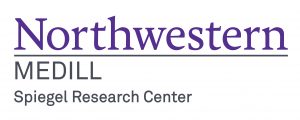Executive Summary
Research points to a fundamental reconfiguration of search, with AI tools accelerating adoption, changing consumer behaviors and challenging marketing frameworks. AI-driven search is not a peripheral trend but a transformative force redefining discoverability. The question is no longer if marketers should adapt, but how quickly they can realign strategies to remain relevant in this evolving landscape.
- AI search adoption is happening at an unprecedented pace, faster than previous technology shifts.
- Consumers are increasingly relying on AI-generated summaries without clicking through to websites, diminishing the impact of traditional SEO strategies.
- AI platforms like ChatGPT and Gemini are becoming central to discovery and decision-making, gradually shifting away from Google as the default search destination.
Consumer Adoption of AI Search Is Accelerating: Implications for Marketing Practice
This article is part of our ongoing series on AI in Search, which examines how artificial intelligence is influencing information-seeking behaviors and brand visibility. To better understand this change, our 2025 Spiegel Scholars conducted a series of in-depth interviews with senior marketing leaders across multiple industries.
The qualitative findings indicate that AI-powered search tools are not only gaining traction among consumers but are also reshaping the pathways through which marketing influence occurs. This shift raises important questions for practitioners about the future of discoverability and the evolving role of traditional search engines. Below we outline three areas of concern for marketing professionals, each illustrated with a supporting quotation drawn directly from their perspectives.
The Acceleration of AI Search Adoption
“When I think about AI search adoption, I’m struck by how fast it’s happening, much faster than anything I’ve seen before,” observed a Sr. Lecturer of Marketing at Northwestern University. “It reminds me of Amara’s Law: we tend to overestimate the effect of a technology in the short run and underestimate the effect in the long run.”
This observation underscores the rapidity with which AI-driven tools are becoming integrated into everyday search behaviors. Rather than a gradual evolution, the transition appears to be occurring at a pace that outpaces marketing company’s ability to adapt.
Behavioral Shifts and Zero-Click Search
“AI is definitely impacting search… people are not going beyond those AI results, which is resulting in traffic to dip on websites,” noted an SVP of Marketing Operations at a financial holding company in the southern United States. “I myself am guilty of it—if I see something in that AI search result, I’m more likely to be like, okay, that’s the answer I needed, and keep moving on.”
This pattern reflects a broader movement toward zero-click behaviors, where consumers increasingly rely on AI-generated summaries rather than navigating to individual websites. For marketers, this trend diminishes the effectiveness of traditional SEO strategies and necessitates new approaches to visibility.
The Changing Role of Search Platforms
“We’re a small company in the nonprofit space, so we’re not early adopters of AI tools,” explained a VP of Business Development & Marketing of a consulting firm in the Chicago area. “But it is top of mind and something we’re actively working to incorporate more. I see this shift away from Google search toward AI platforms like ChatGPT or Gemini, where it’s not just searching but also responding with context and decision-making. At some point, the default will no longer be Google search.”
This perspective highlights a structural change in the search ecosystem. As AI platforms assume a more central role in information retrieval, marketers must consider how their content is represented within these systems rather than focusing exclusively on traditional search engines.
Implications for Marketing Strategy
The qualitative data suggests that AI-driven search is not a peripheral development but a significant reconfiguration of the digital discovery process. For marketing practitioners, the question is not whether to adapt, but how quickly they can realign strategies to remain discoverable in an evolving search landscape.
Meet the Researchers
This research was conducted by our 2025 Spiegel Scholars who are currently on the job market. If you’re looking for emerging talent with expertise in marketing strategy and AI, connect with Spiegel Scholars: Yijia (Ariel) Zhang, Shiyuan (Kristen) Ding, and Muhammad Iqbal.

Yijia Zhang
Spiegel Scholar, IMC Full-Time Master's Program
2025

Shiyuan Ding
Spiegel Scholar, IMC Full-Time Master's Program
2025

Muhammad Iqbal
Spiegel Scholar, IMC Full-Time Master's Program
2025
